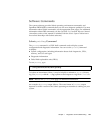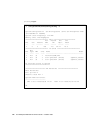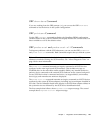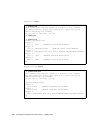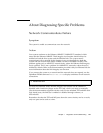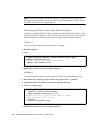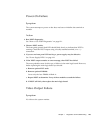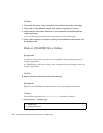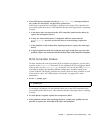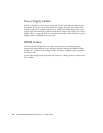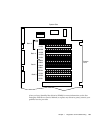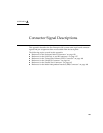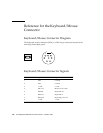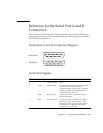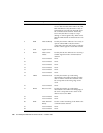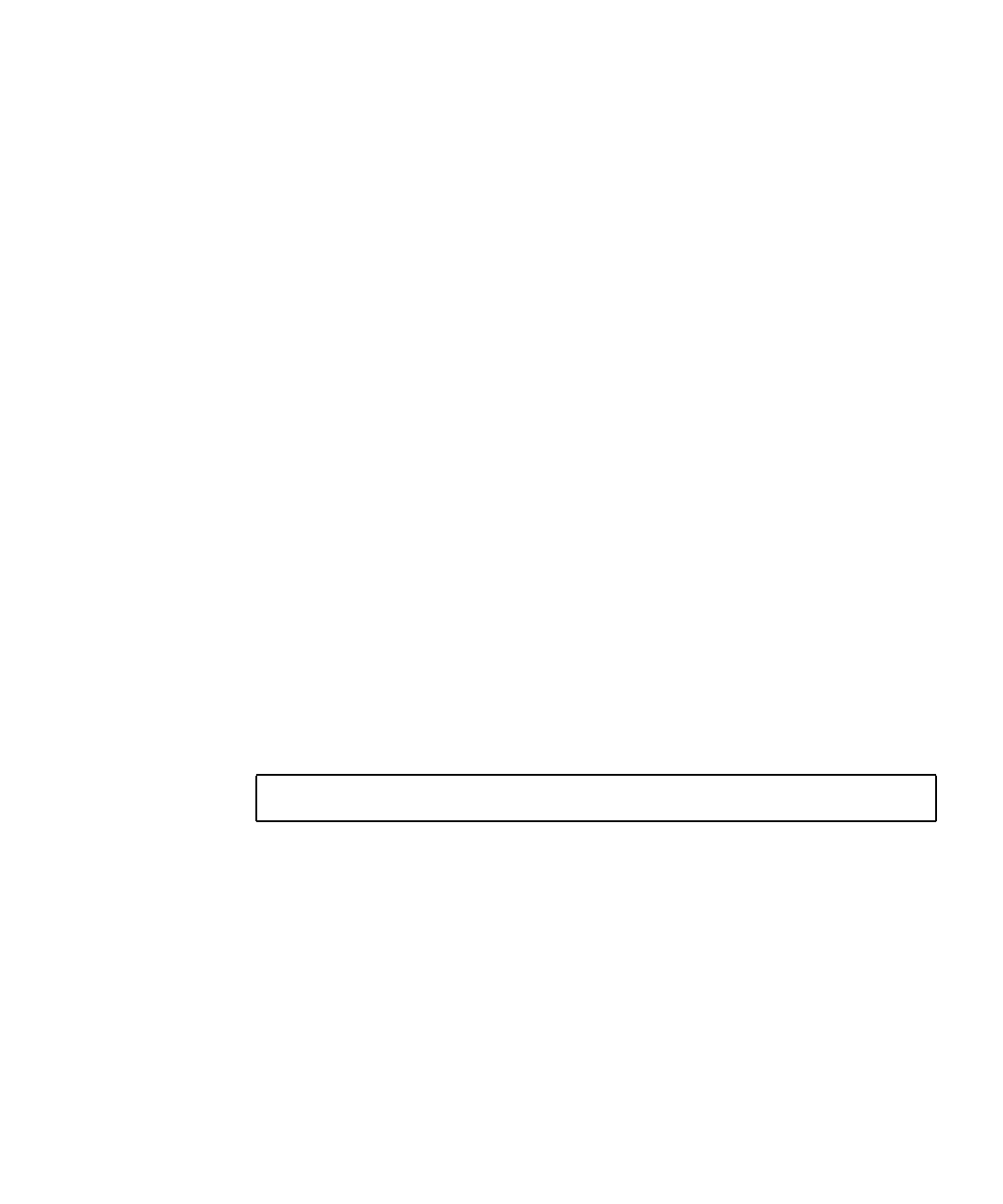
Chapter 7 Diagnostics and Troubleshooting 151
2. If the SCSI device responds correctly to probe-scsi-all, a message similar to
the “probe-scsi-all output:” on page 146 is printed out.
If the device responds and a message is displayed, the system SCSI controller has
successfully probed the device. This indicates that the main logic board is operating
correctly.
a. If one drive does not respond to the SCSI controller probe but the others do,
replace the unresponsive drive.
b. If only one internal disk drive is configured with the system and the
probe-scsi-all test fails to show the device in the message, replace the
drive.
c. If the problem is still evident after replacing the drive, replace the main logic
board.
d. If replacing both the disk drive and the main logic board does not correct the
problem, replace the associated UltraSCSI data cable and UltraSCSI backplane.
SCSI Controller Failure
To check whether the main logic board SCSI controllers are defective, test the drive
response to the probe-scsi command. To test additional SCSI host adapters added
to the system, use the probe-scsi-all command. You can use the OBP printenv
command to display the OpenBoot PROM configuration variables stored in the
system NVRAM. The display includes the current values for these variables as well
as the default values. See “OBP printenv Command” on page 145 for more
information.
1. At the ok prompt, type:
If a message is displayed for each installed disk, the system SCSI controllers have
successfully probed the devices. This indicates that the main logic board is working
correctly.
2. If a disk doesn’t respond, replace the unresponsive drive.
3. If the problem remains after replacing the drive, contact your qualified service
provider to replace the associated SCSI cable and backplane.
ok probe-scsi



